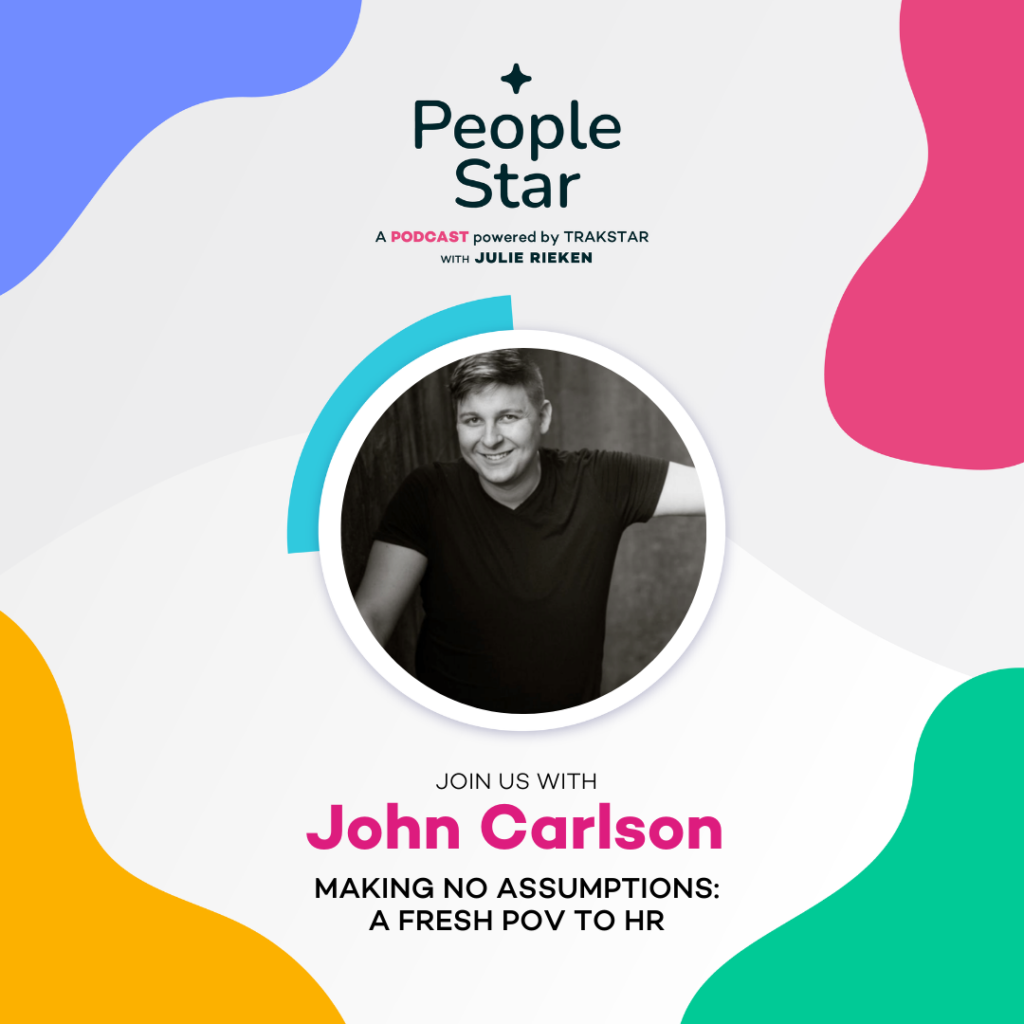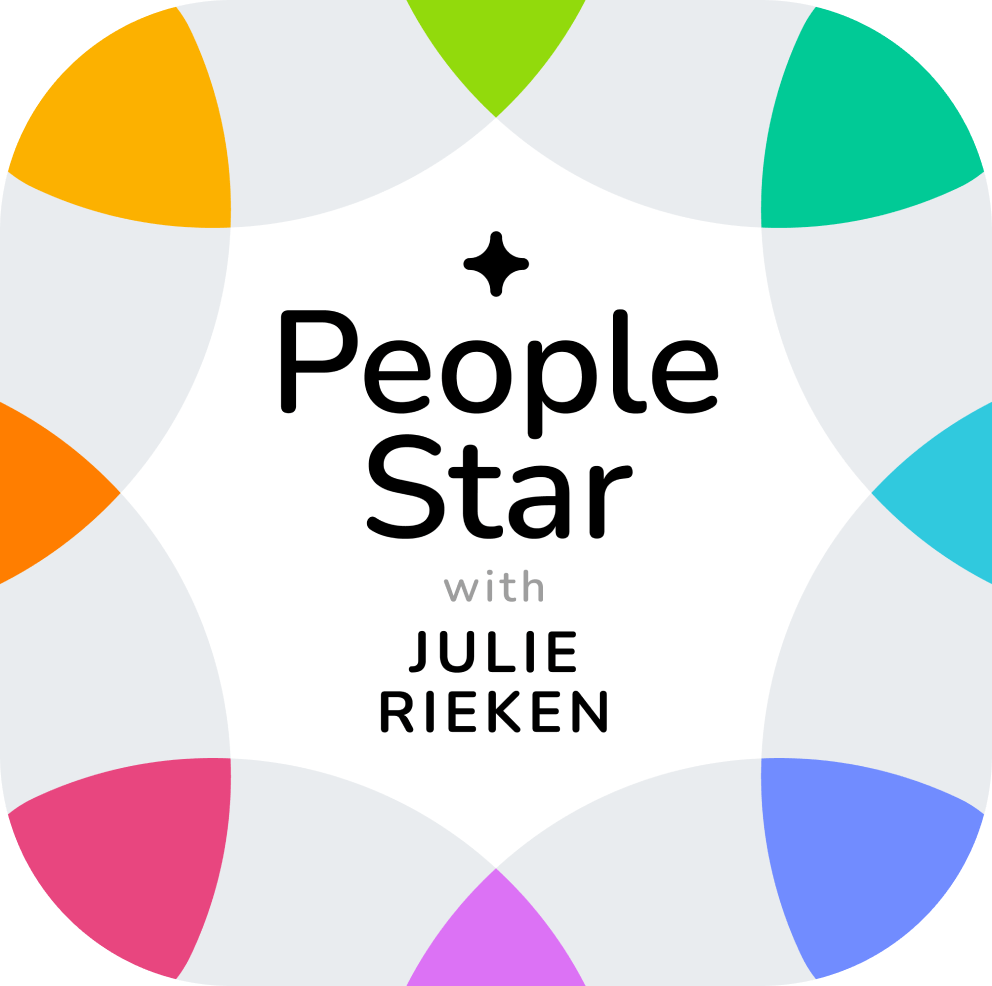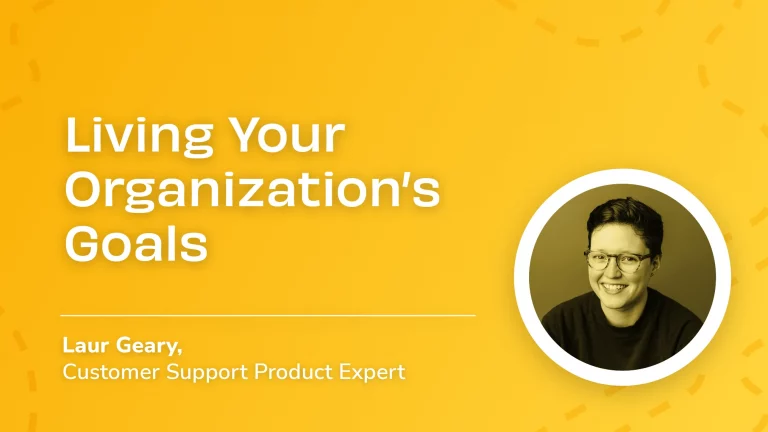PeopleStar_John Carlson: this mp3 audio file was automatically transcribed by Sonix with the best speech-to-text algorithms. This transcript may contain errors.
PeopleStar Intro:
Welcome to the PeopleStar Podcast. We deliver leadership perspectives from industry experts on their people, architecture, routines, and culture as they solve HRs newest challenges. And now your host, Julie Rieken.
Julie Rieken:
Good day podcast listeners, Julie Rieken here, host of People Star, and I'm really honored today. I've got John Carlson, who is the chief culture and talent officer for Filtrous, which is a hypergrowth biotech company that started in 2018. Super interesting origin story there, but I think even more interesting is the role that John plays at Filtrous, and we're going to talk about that today. So, John, welcome to the podcast!
John Carlson:
Thank you, Julie, and I, thank you so much for having me.
Julie Rieken:
So I'm super excited. We were talking about your title, the Chief Culture and Talent Officer, and you told me what you believe your job is. And if you would just share that with listeners, I think it's, I think it's a great way to start our conversation today.
John Carlson:
Absolutely! So it's interesting. When I was first hired, my job was HR director or CHRO. And as this role developed in the first couple of months, my CEO and I decided that HR really has kind of a negative connotation around it. And he approached me and he said, what is it that you really think that you do, if you could sum up your job? And I said, my job is to protect our culture, and to hire and retain the best talent. And I think everything that I do for Filtrous really stems from those two things. Obviously, there's, there's some extra day-to-day tasks, but if I'm doing those two things, I know that I'm creating systems that make it a great place for people to work, for people to stay, and to protect the culture there.
Julie Rieken:
I think that's amazing. You mentioned that the company started in 2018 and your CEO had a vision to treat people better at an organization, and you've had to create HR from the ground up and you're a protector of that culture. Can you just tell us, when you came into this job, how did you approach that? That's a big task, how did you approach it and how do you think about finding and hiring and retaining the best people and creating that positive culture where people are treated better?
John Carlson:
It is. And what's really interesting, Julie, when I first came on board and I've worked with startups for years in the consulting space, so it's not unusual for me to come into an organization and find a broken culture or find an undefined culture. What I found at Filtrous was the exact opposite. And what's interesting about that is that prior to me there were no, quote, defined cultural values, or anything that has been written in stone. But there was this just fantastic organic culture that existed within the organization, full of just amazing people. And I said, you know, I don't need to, I don't really need to change our culture, our culture's great. I need to retain our culture, I need to define it so that as we continue to grow and scale, that we find people who live through the same values that we're exuding. And from there, that's how we started to grow out our HR system, is to make sure that the people that we were bringing on board, not only from a technical standpoint, that they are the top talent, but also that they truly lived and breathed our values and making sure that they brought their full selves to work and were the customers best friend, and all the things that we stand for as an organization.
Julie Rieken:
Super interesting. And you know, one of the things that I, that I find really interesting is that when you came on board, you recognized, oh, I'm not here to change it, I'm here to retain and define it. And oftentimes when we start something new, we maybe make a personal assumption that I'm here to change it, and you made the opposite choice. How did you help define this organic culture that, that was already there? How did you recognize it and then define it?
John Carlson:
You know, it's crazy, but I actually took the time to listen to people. I know that that's wild for some people, though. I, one of the first things that I did is I took the first probably, I'd say 40 to 60 days, just getting to know the people in the organization, having focused meetings with every single department, finding out what drives people to come to work, what makes them love, stepping through the doors, what makes them stay? What are some things that we couldn't improve upon so that we could tweak the culture as needed to make sure that we're retaining our top employees? But that's the number one thing, is I didn't immediately go in with any assumptions and say, here's what I've done at previous companies, now let's copy and paste it here. I want to know what makes Filtrous special, what makes our people love working here, and what has given us this great culture for the three years prior to me coming on board, because obviously, it was successful, it grew 200, 300, 400% year over year, so the growth is there. And I came into it with no expectations and no assumptions. And I think that was one of, probably the best things that I could have done was to really just listen and observe.
Julie Rieken:
I know it does sound so like, oh, I listened, but honestly, that's a really big act, John, it's a big deal.
John Carlson:
You'd be surprised how many people I talk to that just simply don't take the time to listen to their employees. And here's the thing, Julie, if you would have asked me about this probably ten years ago, I was that manager. And it's hard for me to admit this because I've shifted so much as a person, that I would walk through and I'd ask people, hey, how's your day? How is your weekend? And I keep walking without actually taking the time to listen to them. And it was so, it was so insincere. And I hate that I ever was that person. But now that I recognize that, that is the downfall of who I was, then how important it is to just take the time to listen to your employees because they'll tell you, they'll tell you what they're feeling, what they're thinking, what their frustrations are. And as a leader in the organization, it's your job to change that where you can, or to help your employees, or simply be there for them sometimes, you know, empathy goes a long way, and gratitude goes a long way.
Julie Rieken:
Wow. That's really vulnerable. And, and I have to say, I've, I've been in the same trap and maybe even some days find myself in that same space. And it's an active process to stay engaged in the listening of what's going on. So I really appreciate that you're doing that, which leads to the next question. You're actively listening, do you have, this is maybe a two-part question, do you have formal mechanisms for listening at Filtrous? And how do you think about responding to the things that you're hearing from people?
John Carlson:
Yeah, I would say we are in the process of formalizing some feedback loops. Currently, we're small enough right now, gratefully, that I can retain a fairly open door and people feel free to just approach me and confide in me as needed. Obviously, that's not going to be the answer going forward as we continue to grow in scale from 50 employees to 250, then 500 employees. So having a more formalized feedback system is definitely what we're aiming for. But I think the most important thing is when you have an employee contact you or reach out to you, first of all, make the time for them, set the distractions aside, put your cell phone away, stop looking at your computer, stop typing, focus on the employee and what they have to say. As I've learned from years of customer service and client services, most of the time things can be fixed by simply someone acknowledging the situation, showing empathy and ownership, and saying, hey, listen, I understand where you're coming from, here's my response to it, or here's what we're working on to make it better, or if I've never heard of the thing before, it's, let me take a little bit of time to think about this, look into it, see what can be changed, or I can at least get you a response back. But taking ownership of it has been the number one thing I think that I've brought into Filtrous. It's, there already is a great culture that exists, but it's so fun coming in, I try to make a visit about once a month to the office because I'm based in Tampa and it's based in San Diego, and coming in and just getting to see the people and light up when I come in the office, it's just so fun because they know that I'm there for them, they know that I'm there for the company, and it's just it's a great environment.
Julie Rieken:
Okay. I've got, I think, three follow-ups out of that. That's amazing.
John Carlson:
Sure, sure!
Julie Rieken:
So one of the things I loved that you said is that right now you put down the cell phone and you're just present in the moment and scale matters, but I also think what you said is critical. Sometimes putting technology and formal mechanisms in place are necessary at scale. But you can't put, you can't put that filter in between, like if you put technology in between people and emotions, you miss something really important. And so I think what you're doing right now is, is probably the most important thing you can do. But you're right, formal mechanisms at scale are also critical. But, but both of them have to coexist, it seems.
John Carlson:
Absolutely. And also just to protect the employees, too, because there may be some things that an employee doesn't feel comfortable bringing to me or they don't feel comfortable being vulnerable. So having something in place that allows, even an anonymous feedback, or a more private feedback loop, I think is important as we grow in scale. But I will never and I will commit this right now and verbal into my employees, I will never not be approachable to my employees. I think if I get to the point to where my employees don't feel like they can come to me about anything, then I'm no longer effective in my role.
Julie Rieken:
Yeah, I love hearing that. That's a good commitment to one that they'll appreciate and that's wonderful to hear. So, okay, two more things, sustain, maintain and grow. How do you think about if you've got a beautiful culture, you're listening and things are positive, things can change, how do you wake up every day and say, well, when you do wake up every day and you say, I've got to sustain, maintain and grow this culture into the future, what do you do? How do you think about that when you think about your role? How do you do it?
John Carlson:
So first of all, I think about what makes people stay, right? They have to feel engaged. They have to feel connected to the business, to the vision, to other employees. One of the things that I think COVID really helped me with in one sense is to understand and solve for employee engagement at a distance, because like I said in Tampa, so it's all about those daily touchpoints, it's reaching out to the employees. I kind of just, you know, at random I talk to employees and it's like, hey, how's your day going? Happy Friday. Are you ready for the weekend? What's your plans? You know, we have employee game nights sometimes when I'm, when I'm there in town and we'll go out to eat and stuff like that. So it's all about maintaining those connections so that people are happy when they walk through the door. The number one reason why people stay at their jobs, it's not salary, it's not benefits, it's the people. It's the people they work for it and the people that they work with. So if we can maintain that, we can weather just about anything.
Julie Rieken:
I love that. And there's something now that I know I'm dying to know, I'm probably other people are, too. But you've, you've said you're in Tampa and that and that you have an office in San Diego and that when you go and show up there, you're thinking about you're thinking about people. Can you just share something joyous that's happened when you saw people light up, or what was the experience like when you were there recently in San Diego? Tell me something fun that happened.
John Carlson:
So actually I'm going to go back and I'm going to go to the first time I made it to San Diego. I didn't know what to expect. And you're walking into a, it's different than Zoom. You're walking into a building that you've never been in before with employees that they've, they've zoomed you before, but they've never met you before, you don't know how it's going to be. It's going to feel awkward, you know, you're full of questions, right? The second I hit the door, I was welcomed with high fives and like, oh, my gosh, it's so nice to meet you. Later that night, they had planned an escape room, which I have never done before, and it was a blast just getting to go to dinner with the employees and meet some of the teams, go to an escape room, have these moments together. We play putt putt golf another night. It's just, it's such a welcoming environment and people are like, I'm so glad to have you in the company. I feel like there's someone, not that I couldn't before, but there's someone dedicated to our culture, someone dedicated to hearing us out as employees and finding a middle ground, and just, just I'm so glad you're here. And to hear that was just amazing.
Julie Rieken:
I love that. And I've heard a couple of things that I think it sounds like you're really succeeding at. And I hope that all of our listeners think about these things, too, because they're important. You're talking about, I wish I could remember the exact phrase, but it was something like engagement when you're remote, remote engagement connections, and then you talk about the personal engagement connections and the blending of those two worlds and how important that is.
John Carlson:
Yeah, you know, one of the things that's, that I get asked a lot by other peers and other friends is how do you, how do you stay kind of top of mind when you're 800 miles away or more and really be connected? And it's all about those daily touchpoints. For me, like there's not a day that goes by where someone has to wonder like, oh, you know, is John around? Is John here for me? Because I'm so active with reaching out to people and just talking to people and maintaining those, those connections. And I think that that's really crucial. Especially someone who is a protector or a builder of culture, you have to have those touch points with your employees. I don't care how bogged down your day is, trust me, there are days where I have gotten to work in the morning at 7 a.m. in the office and haven't left until 8:00 or 9:00 PM. But I always, always, always make time to just have those one off conversations. If someone kind of is feeling down, I'll talk to them in the office and just say, hey, you know what's going on? What can I do to help? What can I do to make things better? And you just see the complete shift and change.
Julie Rieken:
I wish I wish listeners could see the huge smile that's on my face just thinking about how, how you are living and breathing this role, how important it is that people have somebody that's dedicated in you and that you think about the daily touch points, I love that, it's super cool. John, I have learned a ton today and I'm actually animated and excited to go have some daily touch points in my own company and I think I'm going to let you get back to yours.
John Carlson:
Sounds fantastic. Thank you so much for having me, Julie.
Julie Rieken:
This has been great. Thanks, John.
PeopleStar Outro:
Thanks for listening to the PeopleStar Podcast- for the show notes, transcript, resources, and more ways to get a seat at the table, visit us at TrakStar.com/Podcast.
Sonix has many features that you’d love including world-class support, upload many different filetypes, share transcripts, secure transcription and file storage, and easily transcribe your Zoom meetings. Try Sonix for free today.




